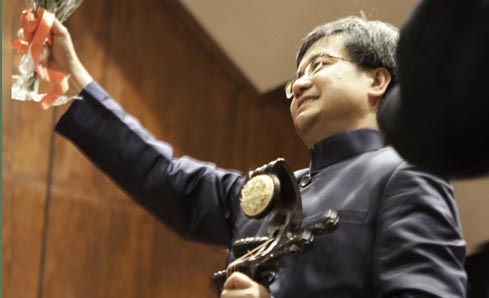 |
|
Hing fat-Wong
|
A renowned and well-known award-winning Chinese musician from Hong Kong, Hing fat-Wong, enchanted music lovers of the classical genre, after joining forces with Frankie Feng, Music Director of Free State Orchestra of Chinese Music (FSOCM), live on stage at our university’s Odeion for the first time in 30 years. Wong and Feng lit up the stage, to a full house, with an outstanding orchestral performance at the FSOCM’s first concert for the year, called Ancient Chinese Classical Music. Wong was invited by the FSOCM in January 2011 to play solo pieces on the traditional Chinese instruments, the pipa and guqin.
Wong conducted two works, Shanbei Suite and Variations on Yang Guan. Both were arranged by Feng and are based on Chinese folk songs and ancient melodies, respectively. According to Wong, ancient melodies refer to all music before the 1911 Chinese Revolution. However, Wong stated that Feng’s arrangement gave new life to these melodies, as played by the FSOCM.
Wong proved to the audience that his talent goes beyond the conductor's baton, and includes his ability to play instruments such as the pipa and guqin masterfully, by performing several solo pieces using these two traditional Chinese instruments.
During his stay in Bloemfontein, Wong was invited by Prof. Nicole Viljoen from our Department of Music to host a successful seminar on the appreciation of Chinese music. Attendees had the opportunity to listen to a lecture by Wong and gain first-hand experience of classic traditional Chinese instruments being played. The FSOCM is a multi-cultural orchestra and looks forward to hosting more high-quality performances with soloists of the calibre of Wong throughout the year.